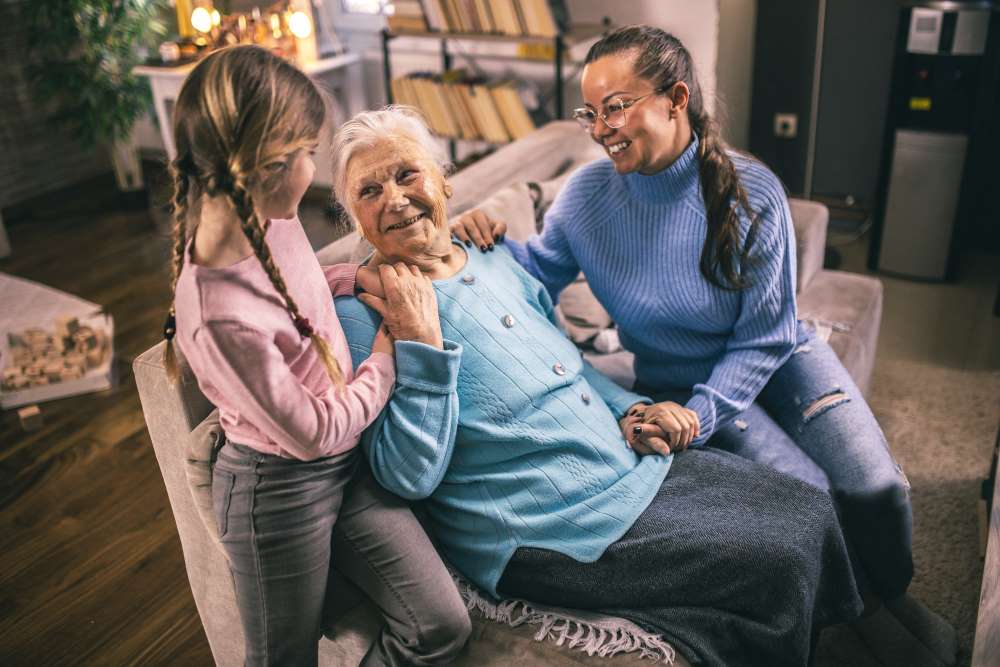
The circle of life gently reminds us that as time passes, the roles we once knew begin to shift. The very parents who guided us through the intricacies of life, teaching us to navigate the world with care, eventually reach a point where they, too, need guidance and support. This transition, filled with love, respect, and sometimes challenges, involves grown adults stepping into roles of caregivers and advisors for their aging parents. From reversing roles in offering life advice to ensuring their nutritional needs are met, this article explores the multifaceted journey of caring for our parents as they age, highlighting the profound ways we can give back to those who have given us so much.
Providing Advice
Gone are the days when our parents warned us of the dangers lurking around corners; now, we find ourselves in the unique position of advising them. A significant aspect of this role reversal involves educating our parents about the digital world. By teaching them to use technology safely, we shield them from modern-day dangers, such as online fraud and scams that disproportionately target seniors. This exchange of knowledge not only keeps them safe but also fosters a deeper connection as we navigate this new dynamic together.
Nurturing Their Health
Just as they once did for us, ensuring we ate our vegetables and maintained a balanced diet, the responsibility now falls on us to guide our parents' nutritional choices. With age, dietary needs shift, and the importance of nutrition becomes paramount in maintaining their health and vitality. Helping them adjust their diet to meet these new requirements, we find ourselves planning meals, perhaps with more emphasis on heart health or diabetes management, ensuring they receive the nutrients needed to sustain their well-being.
Assisting with Apparel Purchases
Shopping for clothes and shoes, once a routine outing with parents picking out our attire, takes on new significance as they age. We now find ourselves selecting garments that prioritize comfort, accessibility, and specific health needs. From shoes for stroke patients to easy snap-on pants for arthritis sufferers, it’s our responsibility to find the right size and fit for our parents. This role reversal is a poignant reminder of the care and thought our parents once invested in us, now reflected in our actions towards them.
Ensuring Safe Living Environments
As our parents age, ensuring they live in safe, accessible environments becomes our responsibility, mirroring their efforts to baby-proof our homes when we were young. This can involve making modifications to their living spaces to prevent falls, such as installing grab bars in bathrooms or ensuring that the flooring is safe and non-slip. Additionally, we might find ourselves reviewing their home for potential hazards or even discussing the possibility of moving to a residence better suited to their mobility needs, emphasizing our role in safeguarding their physical well-being.
Managing Finances and Legal Affairs
Just as our parents once managed our finances, from allowance to college funds, we gradually start to oversee theirs, ensuring bills are paid and finances are in order. This often extends to legal matters, such as estate planning, wills, and healthcare directives, ensuring their wishes are respected and affairs are in order for the future. Navigating these waters requires sensitivity and respect, acknowledging their independence while offering the necessary support.
Overseeing Healthcare Coordination
Our roles often expand into coordinating healthcare for our aging parents, scheduling doctor's appointments, managing medications, and sometimes, making critical health decisions. This reversal of roles is poignant as we ensure they receive the care and attention they once devoted to us. Whether it’s accompanying them to appointments or researching the best care options, we become advocates for their health and well-being.
Providing Emotional Support and Companionship
One of the most significant ways we care for our aging parents is by providing emotional support and companionship, echoing the comfort and security they offered us throughout our lives. Listening to their concerns, spending quality time together, and maintaining a connection with them becomes increasingly important as they navigate the challenges of aging. This support underscores the enduring bond between parent and child, highlighting the cyclical nature of care and affection.
Navigating the Journey Together
In conclusion, caring for our aging parents is a multifaceted journey that reflects the full circle of life. From offering life advice and managing nutrition to ensuring they have the right shoes for stroke patients, our roles evolve to mirror the care they once provided us. This journey, while challenging, is rich with opportunities for growth, understanding, and deepening bonds. As we navigate this path, we honor our parents' legacy, ensuring they feel respected, loved, and valued in every stage of life.



























